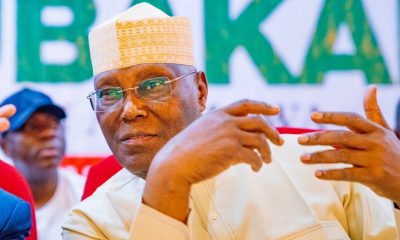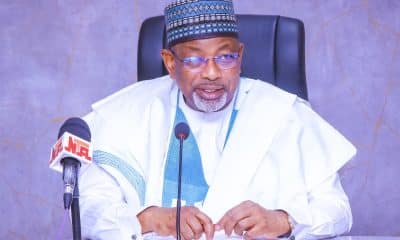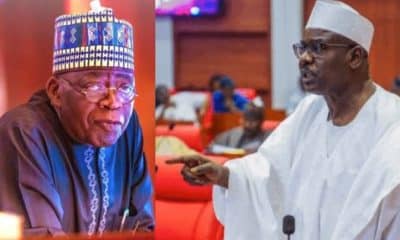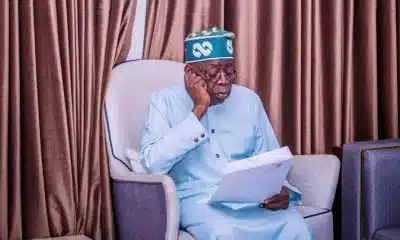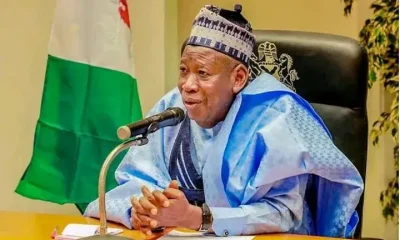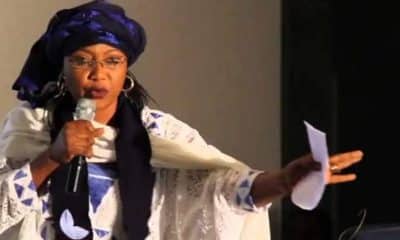Nigeria News
Atiku, Opposition Parties Criticize Tinubu’s Appointments For Lack Of Inclusivity
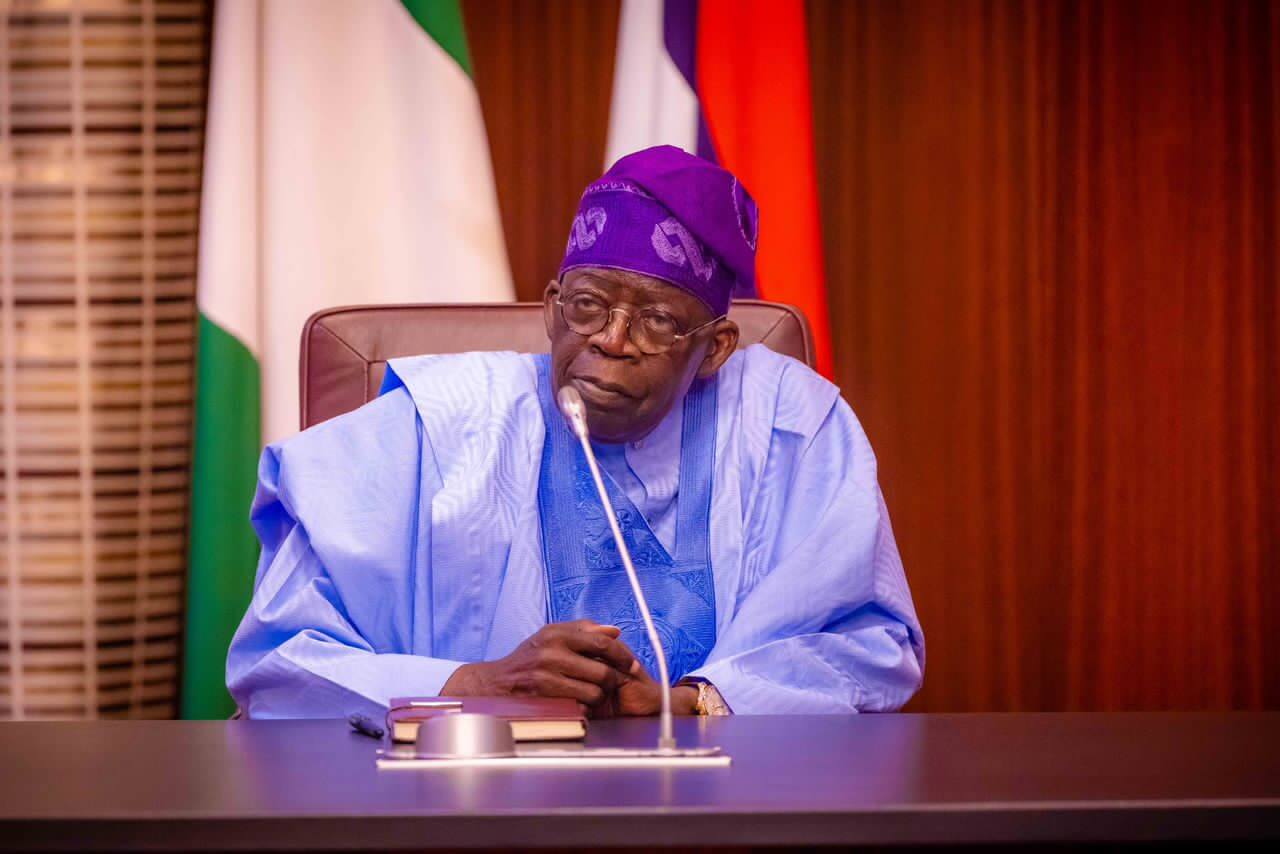
Former Vice President, Atiku Abubakar, alongside the Peoples Democratic Party (PDP), Coalition of United Political Parties (CUPP), and the New Nigeria Peoples Party (NNPP), have criticized President Bola Tinubu’s administration for its failure to promote inclusive governance, amidst growing backlash over uneven political appointments since the beginning of his tenure.
Naija News understands that since President Tinubu assumed office, his appointments have attracted mixed reactions from Nigerians.
While some have criticized the selections for perceived incompetence, others have questioned the appointees’ past allegiances to the All Progressives Congress (APC), and many feel the appointments fail to reflect the principle of federal character outlined in the Constitution.
In an interview on Arise TV’s Prime Time on Monday, Senator Ali Ndume voiced concerns that the President’s appointments do not align with the diversity mandated by Section 14(3) of the 1999 Constitution, which emphasizes the need for a fair distribution of government positions across the country’s regions.
Ndume argued, “The appointments breach the federal character principle. They do not reflect the diversity of Nigeria, which is essential for national unity.”
In an effort to defend the appointments, the Special Adviser to the President on Media and Public Communication, Sunday Dare, released a list on Wednesday showing the geographical distribution of the President’s appointees.
According to the list, 29 appointees were from the South-West (Tinubu’s home region), 35 from the North-West, 22 from the South-South, 16 from the South-East, 25 from North Central, and 24 from the North-East.
However, critics pointed out that the list was incomplete, citing the omission of key figures such as the Minister of Youth, Ayodele Wisdom; the President’s Chief of Staff, Femi Gbajabiamila; and the Comptroller General of the Nigeria Immigration Service, Kemi Nandap, all from the South-West.
This omission added fuel to the accusations of regional imbalance in the administration, particularly with the South-East appearing underrepresented.
As the controversy surrounding the list intensified, Dare took to his 𝕏 handle on Thursday to apologize for the oversight and promised a revised version of the list. However, he did not offer an explanation for why Gbajabiamila’s name was left off.
Opposition Reacts To Tinubu’s Appointments
In response to the ongoing controversy, Atiku Abubakar stated that the Presidency’s attempt to justify its appointments only served to confirm the concerns many Nigerians have regarding nepotism in the administration.
Speaking through his media adviser, Paul Ibe, in an interview with Punch, Atiku warned that promoting state-sponsored bigotry and nepotism in a multi-ethnic country like Nigeria could have serious consequences.
He stated, “It is getting worse under Tinubu. Bigotry must not be a policy of states, bigotry should not be tolerated; bigotry and nepotism must never be adopted as a state policy, as is being done by Tinubu’s administration.
“When you fail to accommodate sections of the country either in appointments or infrastructure provision, you are inevitably enabling divisions and instability. Inclusivity is a tool for national unity, peace, and stability.”
The former Vice President claimed that both the nation and the international community were observing closely, emphasising that no one should be marginalised because of their place of origin.
In his take, the Deputy National Youth Leader of the PDP, Timothy Osadolor, warned that the Presidency’s exclusionary style of governance was a blueprint for chaos and disorder.
He stated, “You shouldn’t have to start defending what’s already obvious. But the fact that it needs defending in the first place suggests there’s something suspicious about it. What is obvious shouldn’t need justification. People have said that this government lacks fairness, and that it’s attempting to mask its nepotistic nature. It’s merely trying to cover up what is already clear. But Nigerians refuse to be deceived—and they cannot be deceived.
“Even if they remain silent, that doesn’t mean they are fooled. The truth is, after Buhari, this administration is even more entrenched in nepotism. It is arguably the second most nepotistic government in the history of this country. And this is not the way to govern a nation as diverse and multicultural as Nigeria.
“Let Tinubu, in his pursuit of power, not unravel the very fabric that holds this country together. Nigeria has held on for years because there has been, to a degree, a sense of balance—across the North, South, East, and West. But this government seems to have abandoned reason and is leaning heavily into ethnocentrism.”
The National Publicity Secretary of the NNPP, Ladipo Johnson, said, “Nigerians are very intelligent people, and they know who is telling the truth and who is saying otherwise. As the legal maxim goes, the fact speaks for itself. We do not intend to say more than this for now.”
On his part, CUPP National Secretary Peter Ahmeh stated that the inaccurate list exposes the administration’s lack of direction.
Ahmeh lamented that Nigeria, Africa’s most populous nation, is being led by individuals who lack the understanding required to move the country forward.
He stated, “For me, it shows the level of how unorganised the administration is. Even with a list of appointed officials, there is something that was supposed to be just there and be updated on a daily basis, the Presidency has no capacity to conduct. So you are not talking about running a country from France.
“The Nigerian system is in the hands of those who do not know what to do to make sure that we have a progressive nation. You have a list that you have released in trying to justify that you have appointed more northerners than southerners, only for you to discover that even the one you released for the North is something else—over 23 of them are Yoruba.”

